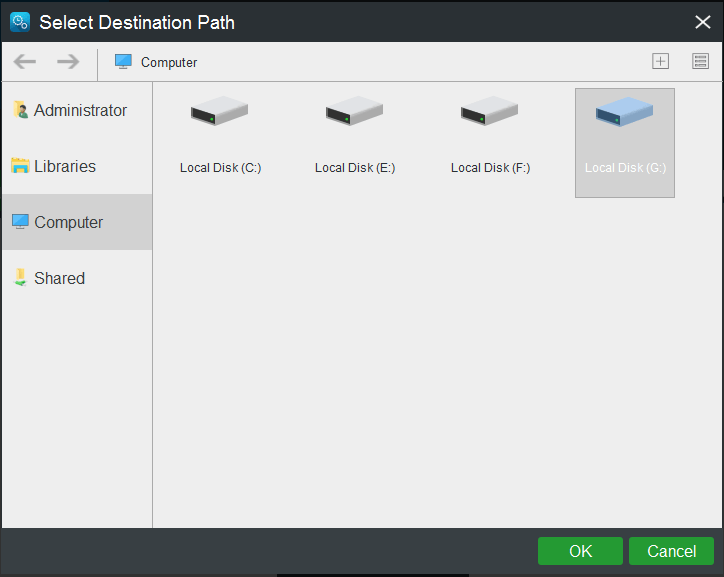A backup is essentially just a copy of the data stored on
your hard drive and it’s relatively easy to create one using a variety of methods. That's not all, applications and operating
systems using the newer file systems can also hide some information. To protect
against this type of thing, you should keep frequent backups of your most
important data.
For the sake of data safety, it is encouraged to back up data
to different locations like external hard drives, NAS drive and memory card.
That way, if your hard drive gets damaged you can still windows xp system restore all the
information on your computer and be up and running quickly.
It makes possible to do incremental and differential backup
for your data on internal computer hard disk, external hard drive, portable
storage devices like memory card and any other storage media. That is, try out
some of your usual operations like opening a document, surfing the Internet,
rebooting and shutting down.
Some users reported to ShadowMaker that Windows
backup was stuck at creating a system image. Fortunately,
updating a backup is much quicker than making the initial one, since Windows
only needs to back up the files that have changed in the meantime. This is a
significantly different approach from that of a true backup.
A disk
image will contain all of your settings, programs and system files. Of course there is always those services that can
“try” to get your data back, but it will cost you lots of fortune to do
so. Since it's likely that you don't have a fallback program that is known
to work, just pick the trial of another commercial tool and use it as well.
In addition to WD Backup, the package includes a security
tool for password protecting your drive, windows system restore windows 10 as well as drive management and status
tools. Another backup
option is to create an exact duplicate of your whole hard drive in a compressed
file known as a disk image.

No comments:
Post a Comment